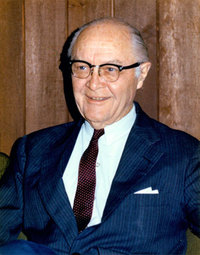Unitarian Universalist minister James Luther Adams proposed five smooth stones of liberal religion in an essay entitled “Guiding  Principles for a Free Faith,” which was published in On Being Human Religiously: Selected Essays in Religion and Society (Max Stackhouse, ed. Beacon Press, 1976, pp. 12—20). R. Lloyd Ryan summarizes JLA’s smooth stones:
Principles for a Free Faith,” which was published in On Being Human Religiously: Selected Essays in Religion and Society (Max Stackhouse, ed. Beacon Press, 1976, pp. 12—20). R. Lloyd Ryan summarizes JLA’s smooth stones:
- Revelation is continuous.
- Relationships ought to rest on mutual and free consent.
- We need to work together for just and loving community.
- We have a commitment to express our faith in society.
- Live in hope.
So What?
Ryan also provided the following rationale for JLA’s writing:
Because of the controversy surrounding Unitarianism and liberal religion in general, one of the best known Unitarian theologians, James Luther Adams, was inspired by the Bible story of David and his five smooth stones to try to articulate the basic principles of liberal religion, of which the Unitarian way is a fine example. Adams felt that it was necessary to have a succinct articulation of the basic principles of the Unitarian tradition because we, as Unitarians, have no creed or dogma that we can point to as other denominations have, and because he wanted us to have a ready understanding of our own Unitarian ideas.
For those who are members of liberal religious traditions: how helpful are JLA’s words today (thirty-five years after they were published)? For those who are from other traditions: do these five principles describe liberal religion as best you understand it?
For those from creedal traditions (all across the theological spectrum): how do the creeds help unite those within your tradition in recent years? For those from non-creedal traditions: what statements of faith or listing of principles have been helpful in uniting your tradition in recent years?
A responsive reading is available for those who would seek to ponder JLA’s words in a group setting.